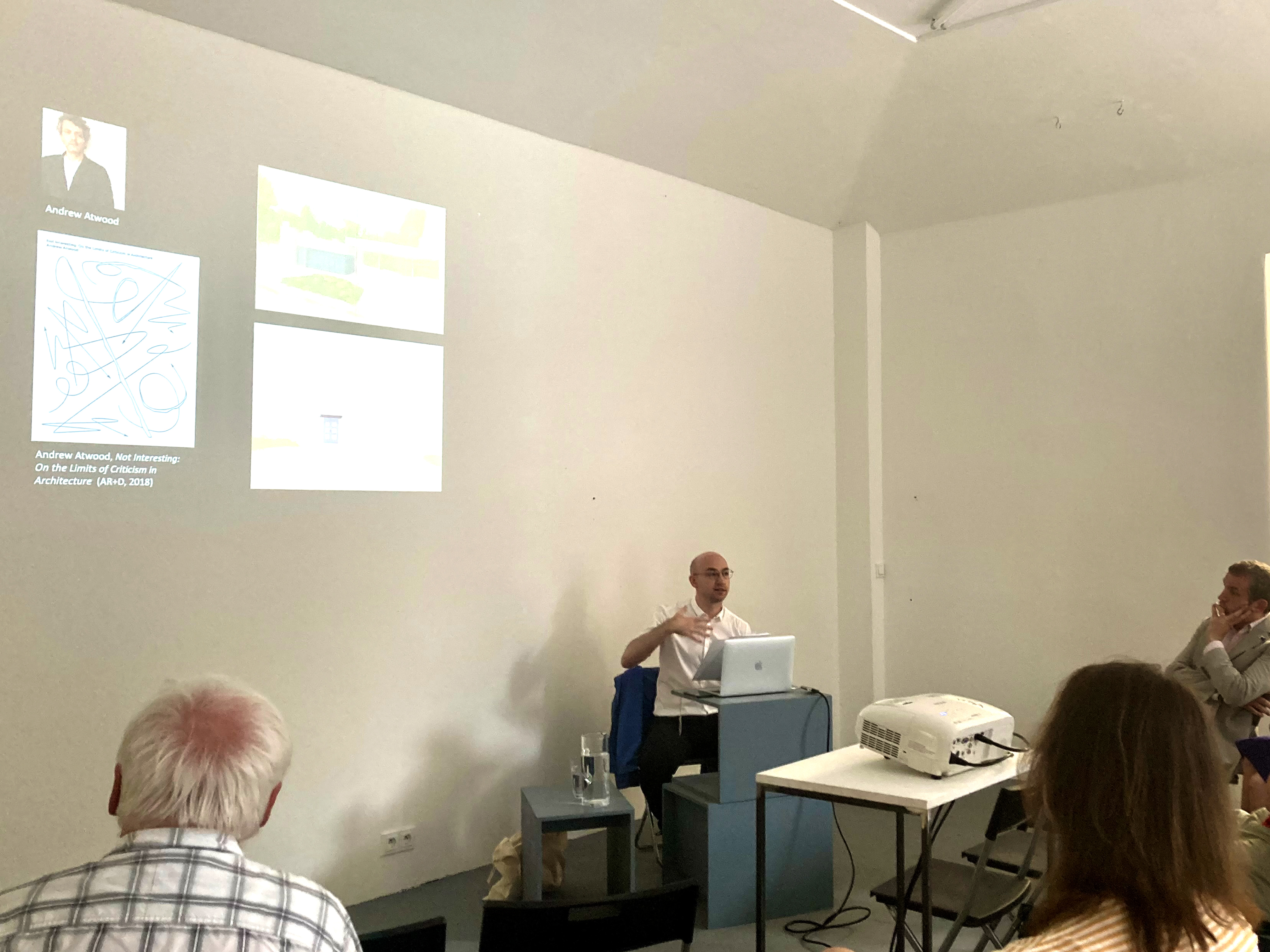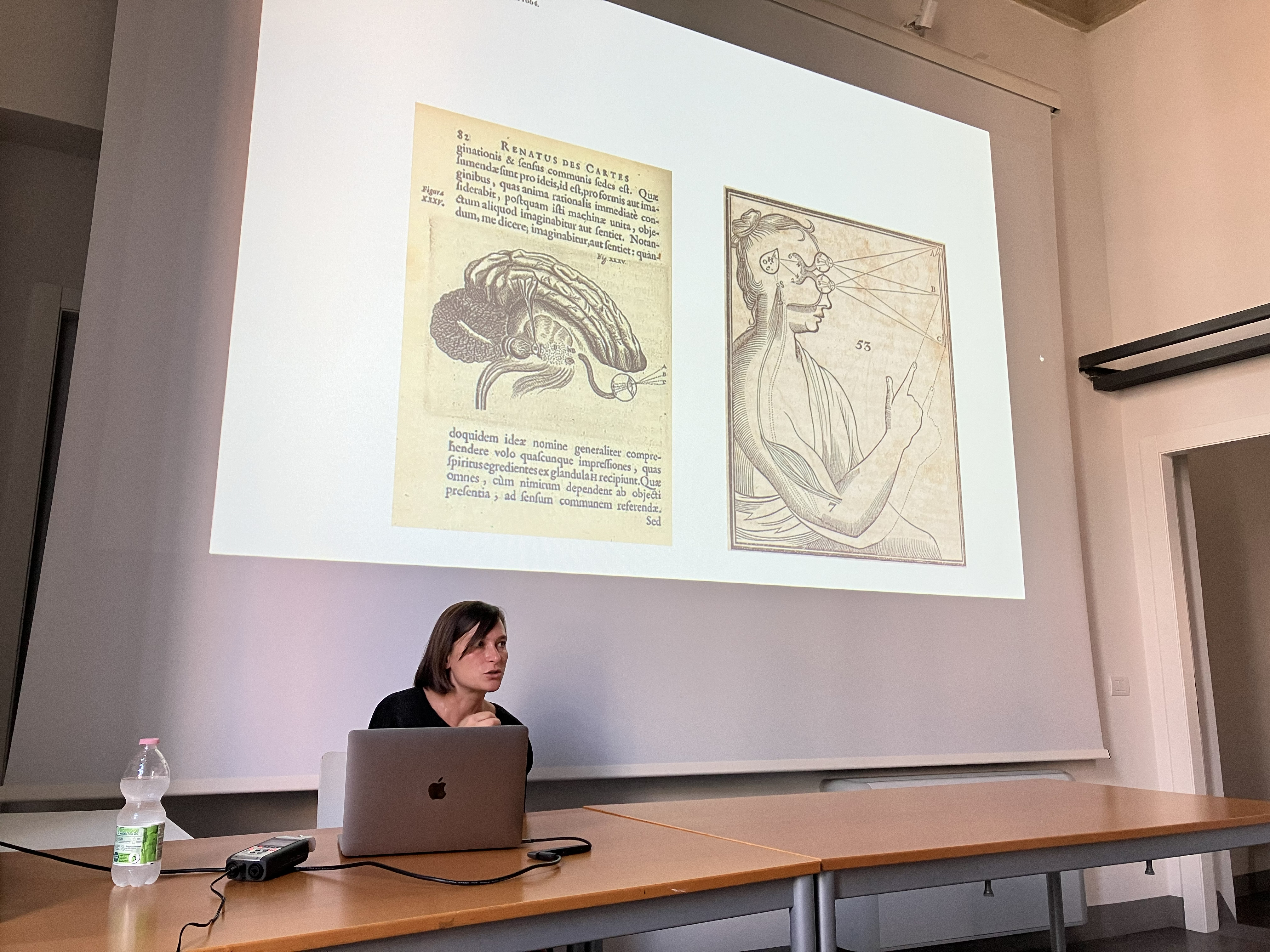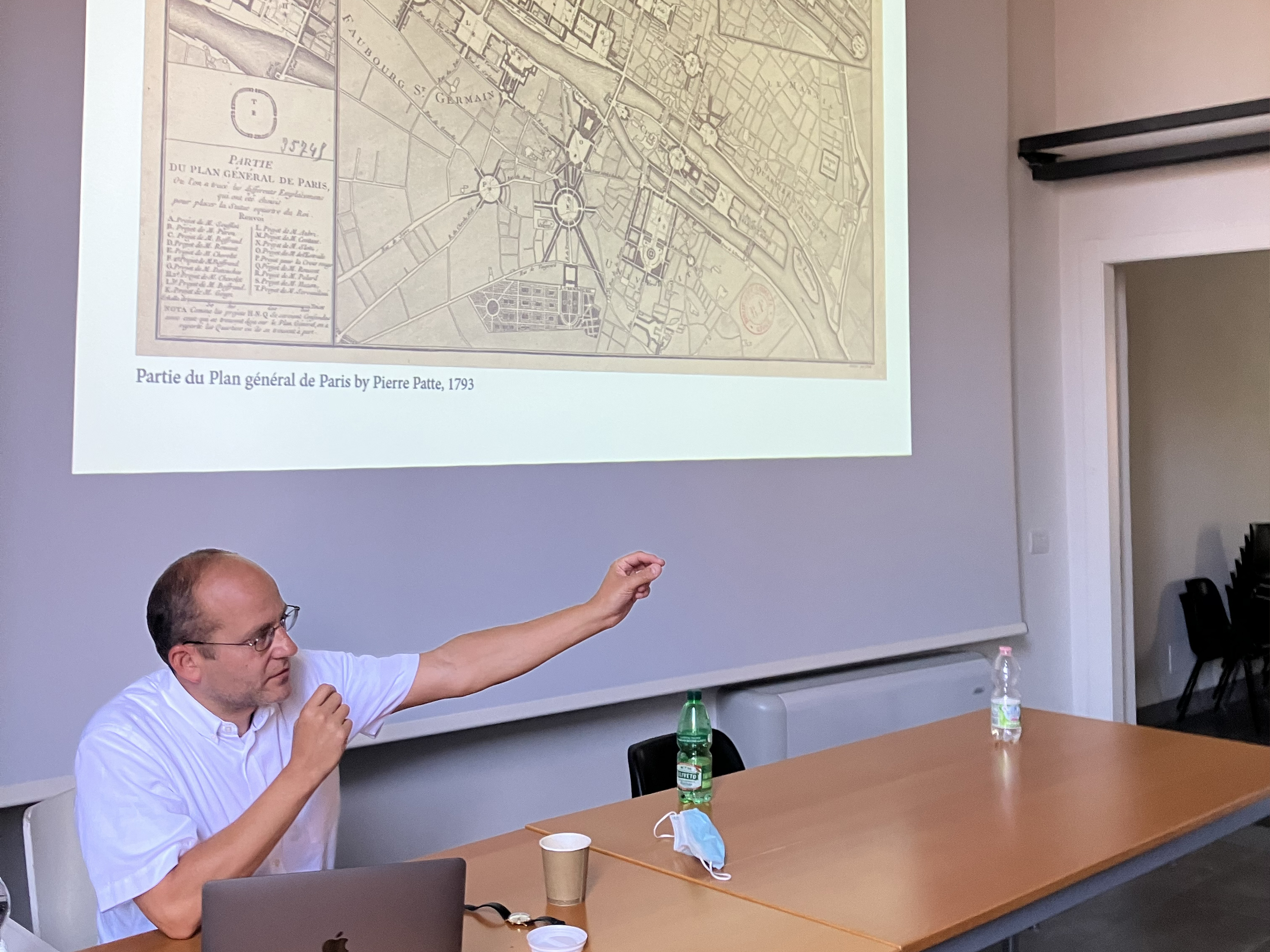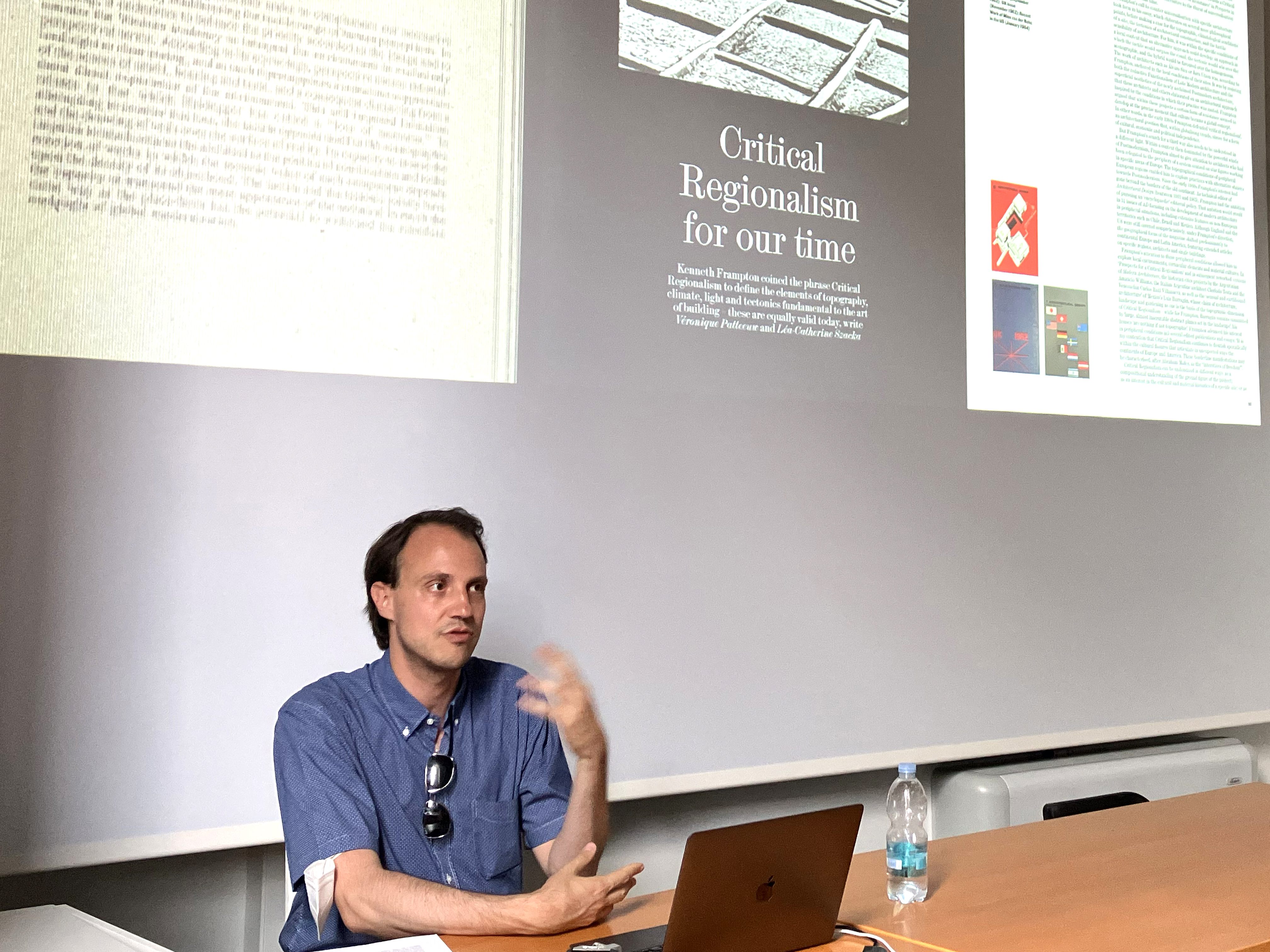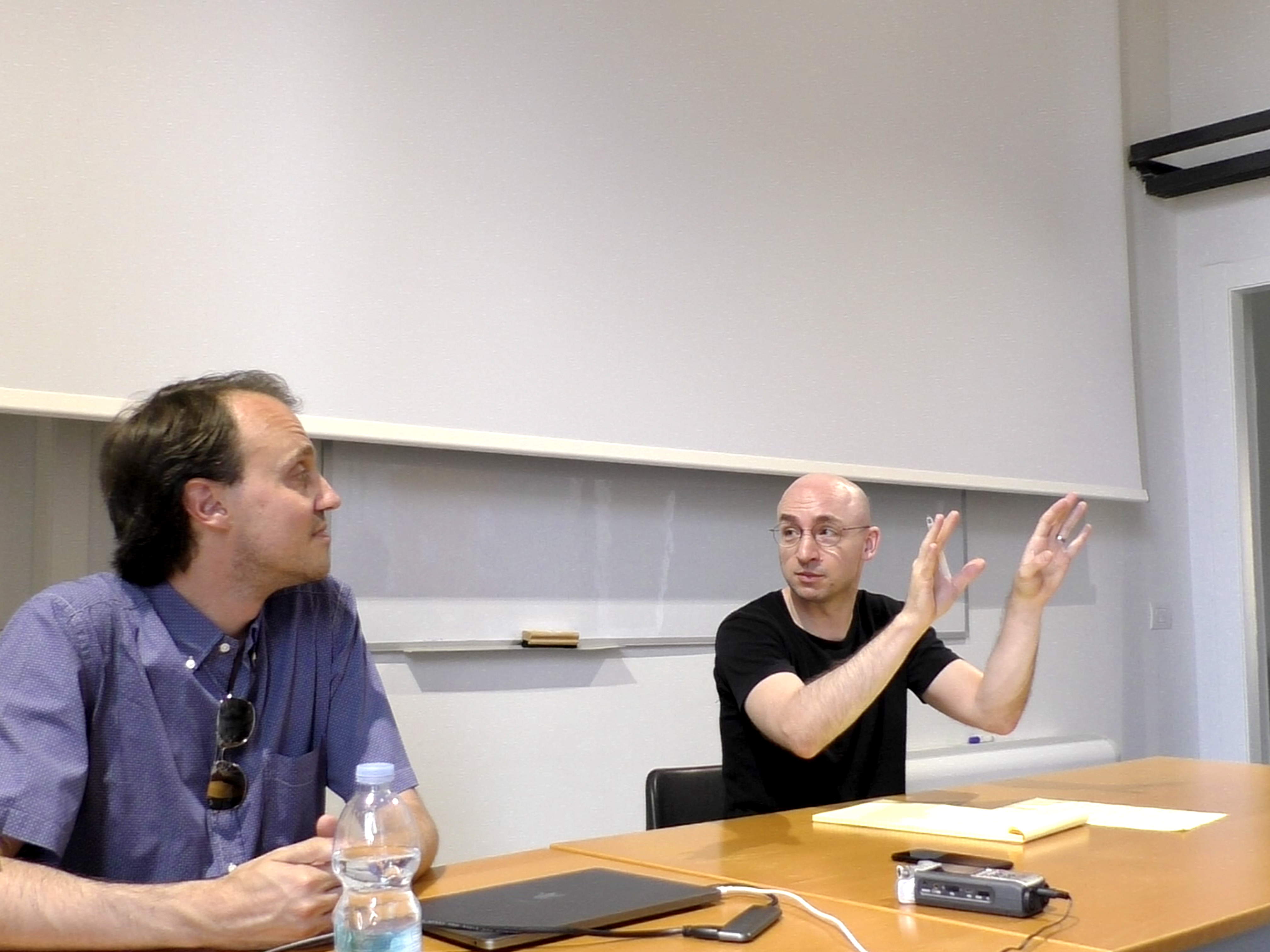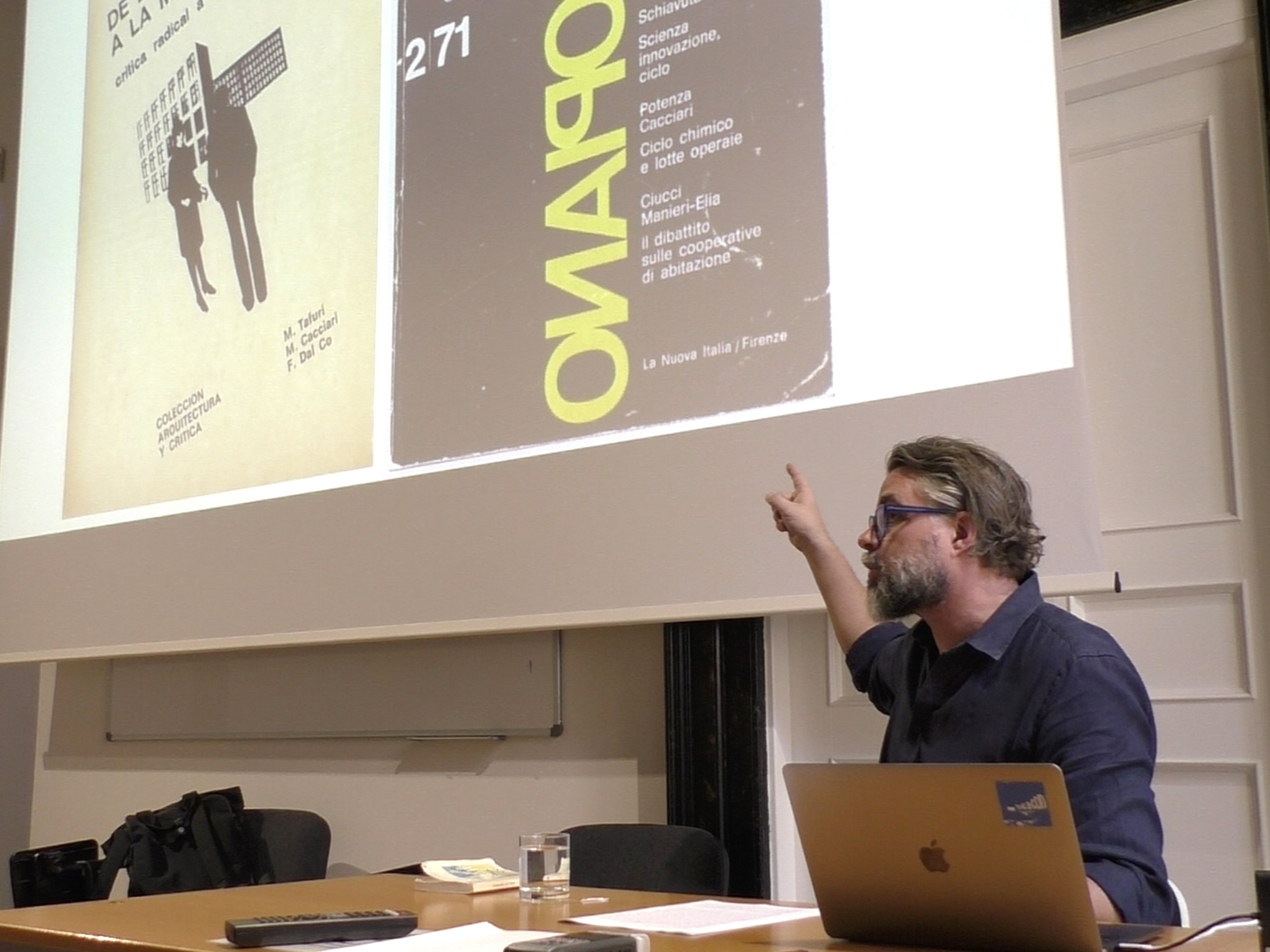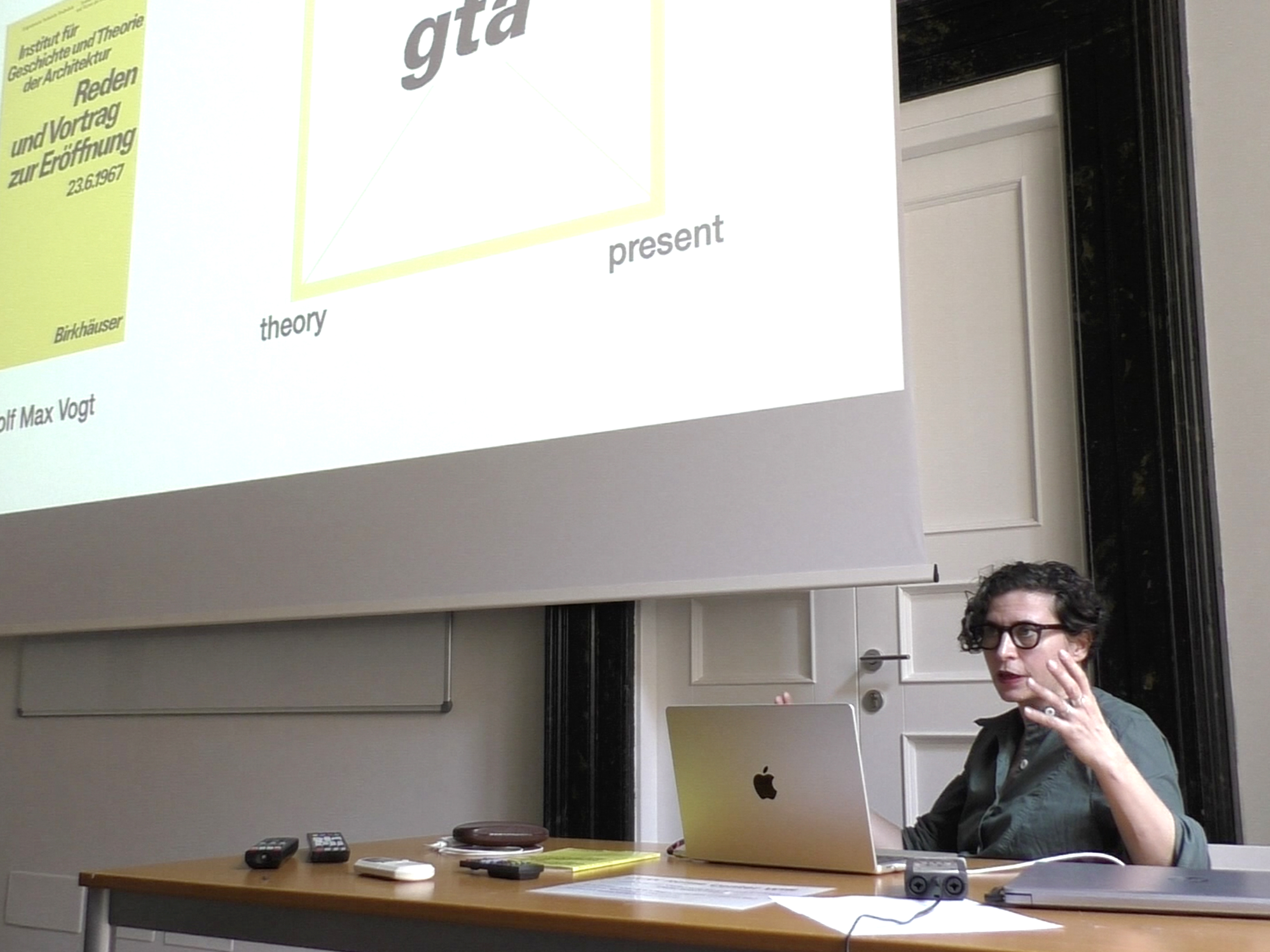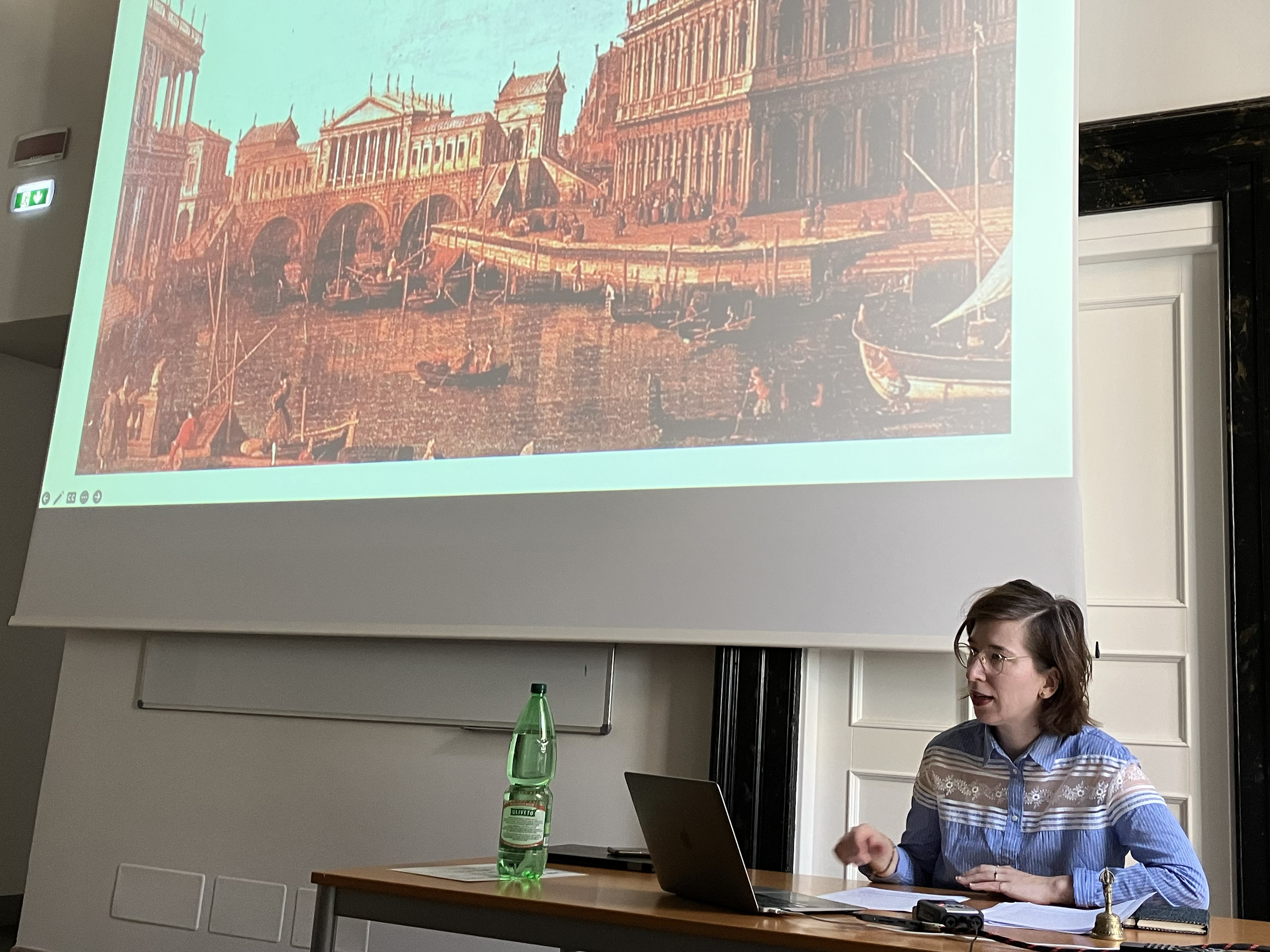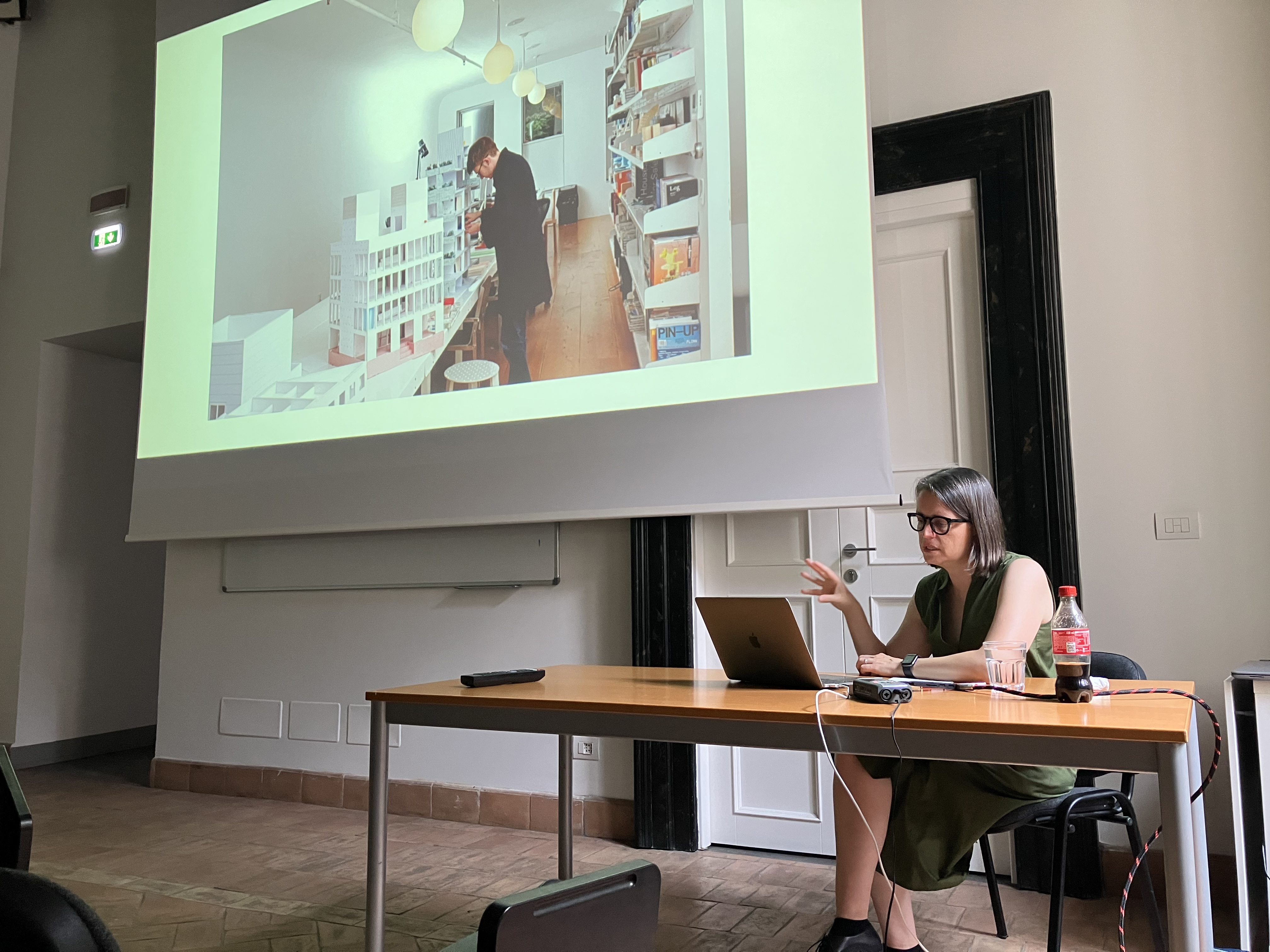Master of Science in Architecture, History/Theory/Criticism Concentration
MS. Arch, Post-Professional Degree, STEM Designated, Based in Blacksburg + WAAC

"Taking the History Theory and Criticism MS at the School of Architecture at Virginia Tech will give you the opportunity to to reflect and study the ideas, intentions, and histories that shape architectural design"
- Associate Professor Joseph Bedford, Ph.D.
Program Philosophy
Advanced research in architectural history/theory/criticism contributes to the production of a critical discourse in architecture which in turn guides the field towards better models of architectural practice in the future. Advanced researchers in architectural history/theory/criticism understand that our buildings and cities have always been produced by ideas about the nature and meaning of architectural design and that to improve the way that we make our buildings and cities requires engaging in critical reflection on those ideas and a concerted effort to develop new ones.
The history/theory/criticism concentration at the Blacksburg campus at Virginia Tech is deeply informed by historical thought and rigorous historical research methods. Yet it is distinguished from the master’s education in history in other programs in the United States and around the world at present by the emphasis that it places upon the critical analysis of the ideas, discourses, and ideologies that form architecture’s contemporary situation.
Research projects might include but are by no means limited to the history, theory and criticism of the following topics: the role of the image in architecture; aesthetic and artistic theories of architecture; theories of architectural representation, drawing and computation tools; philosophies of perception; discourses of race, gender and disability; discourses of affect, mood, sensation and atmosphere; debates about the critical and the projective; the phenomenon of starchitecture and iconic building; parametricism; digital fabrication; architecture’s relationship to capitalism; theories of surfaces, skins and envelopes; debates about autonomy; theories of the role of culture, tradition and meaning in architecture; the history of architecture’s relationship to phenomenology; the turn to preservation and adaptive re-use; the activist turn in architectural design culture; the material turn; contemporary post-digital aesthetics in architecture; speculative realist philosophy and Object-Oriented Ontology; discourses of care, repair, and maintenance; theories of Labor, Work, and the organization of the architectural profession; concepts of climate, planitarity, non-extractive architecture, and carbon form; Automation and BIM, Artificial Intelligence and Big Data.
The History/Theory/Criticism concentration of the Master of Science program on the Blacksburg campus at Virginia Tech is intended for graduates of architecture, or allied fields, who demonstrate aptitude for independent thought and skills in in-depth research, and who desire to retool their career trajectory to build skills that set them up for a non-professional career as much as a professional one. Most graduates of the program will go on to careers as critical and reflective practitioners, using the period of extended historical, theoretical and critical inquiry that the course allows to deepen a particular area of knowledge that will inform their design work in the future. But many graduates of the program will also go on to become authors, journalists, critics and writers; curators and museum directors; advocates for the built environment in the non-profit sector; scholars, teachers, researchers and academics.
A small number of students on the program will have the option to stay at Virginia Tech to develop their research to the level of the Ph.D. in architecture. Those who graduate from the program at the master’s level and who intend to apply for Ph.D. programs elsewhere will have a competitive edge in their future applications to those programs.
Student Work
Example Plan of Study
The Master of Science in Architecture at Virginia Tech is a 36 credit degree which can be completed in three semesters.
Students in the course make their own plan of study follow these requirements:
- Methods Courses (Required 9 credit hours)
- Electives or Independent study (Required 18 credit hours)
- Thesis (Recommended 9 credit hours, maximum 10 credit hours) or Qualifying Exam.
Students on the program take a series of common methods courses in which they study such core domains as the history of architectural history, the history of architectural theory, the history of architectural criticism and the history of architectural education. Students are then encouraged to take between one and three Independent Study courses in which they are asked to establish a list of books and articles that would be necessary to read for a given thesis topic, have the list approved by an advisor, and then read through them and write critical commentaries on those texts. Students then select from a list of architecture and non-erchitecture electives. Below is an indicative list of Architecture and Non-Architecture courses that tend to be offered. This list suggests the kinds of areas of study and the kinds of faculty that students of the course would work with though not all of these indicated courses are offered every semester.
Towards the end of the program, students establish a committee of three advisors, one of whom is the chair of their committee. Most students on the course will choose the thesis option and will submit a written thesis to their committee, defend their thesis, and submit their thesis documentation to the university.
Students intending to proceed directly to the Ph.D. in architecture will undertake the comprehensive exams of the Ph.D. in place of the thesis, which includes, the completion of one additional foreign language (beyond English and their native language).
Students can take between three and six architecture and non-architecture elective courses, depending on how many independent study courses they take.
List of Required Methods Courses:
ARCH 4705 / ARCH 4706: Methods in Architectural History (Joseph Bedford)
ARCH 6005 / ARCH 6006: Methods in Architectural Theory (Joseph Bedford)
ARCH 4705 / ARCH 4706: Methods in Architectural Criticism (Joseph Bedford)
ARCH 6005 / ARCH 6006: Methods in Architectural Education (Joseph Bedford)
An Indicative List of Architecture Elective Courses includes:
ARCH 5134: Visual Culture in 19th Century Architecture (Gonzalo Munoz-Vera)
ARCH 5134: Architecture, Arts, Aesthetics (Markus Breitschmid)
ARCH 5134: Race and Architecture (Sharóne Tomer)
ARCH 5134: Architecture and Perception (Kristin Washco)
ARCH 5134: Theories of architecture and techniques of representation (Hilary Bryon)
ARCH 5134: Urban Histories and Architectural Narratives (Andrew Gipe-Lazarou)
ARCH 5134: History of Modern Architecture in Germany (David Haney)
ARCH 5134: Architecture and the Museum (Elizabeth Keslacy)
An Indicative List of Non-Architecture Elective Courses includes:
Critical Theory (Carolyn Commer, Department of English)
Digital Humanities (Avery Wiscombe, Department of English)
Music & Fairy Tales,(Christopher Campo-Bowen, Department of Music)
Material Culture Research Methods (Lauren DiSalvo)
Feminism and Contemporary Art (Anne Ronan, Department of Art History)
Exhibiting the American West (Anne Ronan, Department of Art History)
Art Histories of the Future (Anne Ronan, Department of Art History)
Art and the Natural History Museum (Anne Ronan, Department of Art History)
Survey Social Theory (Aaron Ansell, Department of Religion and Culture)
Theory of Religion and Culture (Brian Britt, Department of Religion and Culture)
Advanced Art Theories and Processes (Rachel Weaver, Department of Creative Technology)
History of Science and Technology (Lee Vinsel, Department of Science, Technology and Society)
History of Innovation, Science, and Technology (Matthew Wisniewski, Science, Department of Technology and Society)
Gender, Bodies, & Technology (Christine Labuski, Department of Technology and Society)
Social and Cultural Studies of Science and Technology (Daniel Breslau or Barbara Allen, Department of Technology and Society)
Risk in Contemporary Culture (Sonja Schmid, Science, Department of Technology and Society)
History of Science and Technology (Matthew Goodrum or Matt Wisnioski).
Contemporary Political Theory (Scott Nelson, Department of Political Science)
Approaches to 20th Century European Modernities (Heather Gumbert, Department of History)
Urban History (Jennifer Hart, Department of History)
Architectural and Planning History (Dale Winling, Department of History)
Oral History (Jessica Taylor, Department of History)
Historical Methods (Danna Agmon, Department of History)
Faculty
-
Bio Item
-
Bio Item
-
Bio Item
-
Bio Item
-
Bio Item
-
Bio Item
-
Bio Item
-
Bio Item
-
Bio Item
-
Bio Item
-
Bio Item
Admissions
Ideally, applicants will possess a professional degree in architecture, but students without professional architecture degrees may be admitted if their transcripts and writing samples demonstrate sufficient experience and familiarity with architecture to pursue the master’s degree. Applications are due by January 15th. Applications for admission should include:
1) A three-page-max statement of Interest
2) A Curriculum vitae
3) Two samples of writing
4) A three-page-max thesis proposal
5) Three letters of reference
For more information about the history, theory and criticism concentration of the Master of Science in Architecture in Blacksburg, contact Professor Joseph Bedford.
Campus Information
The History/Theory/Criticism program leverages the unique assets of the main Virginia Tech campus in Blacksburg including the opportunity to take graduate courses in a wide range of related disciplines and departments. Students can take elective courses in English, Music, Art History, Creative Technologies, History of Science, History, Sociology, and Design, and other related fields that support their research. Being in Blacksburg gives students of the program ample opportunity to gain experience in teaching which helps to ready graduates of the program for the academic job market in the future. Also based at the Washington-Alexandria Architecture Center, the History/Theory/Criticism program leverages the unique assets of the WAAC, including its proximity to the nation’s capital, its diverse international student body, its robust academic community, and its close working relationships between faculty and students.



